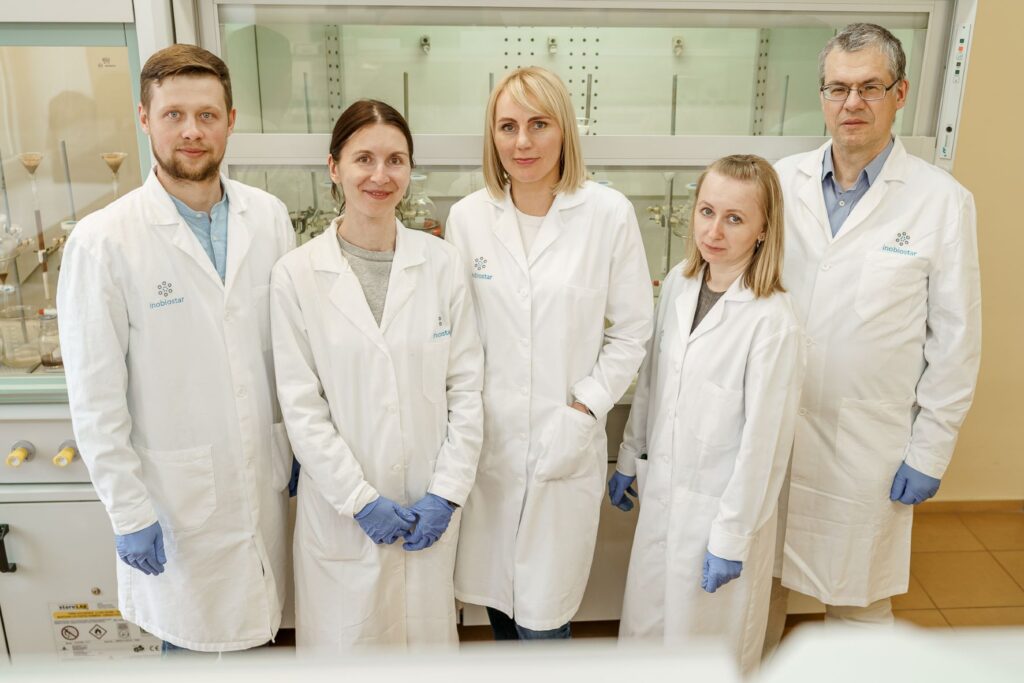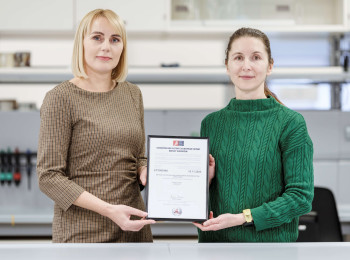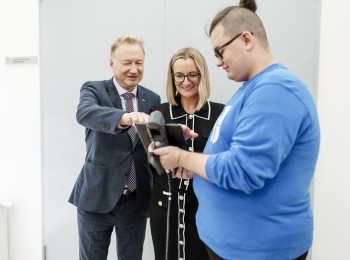The specificity of the technology developed by KU researchers Tatjana Paulauskienė and Marija Kataržytė is the use of natural resources to collect and decompose oil pollutants – inexpensive agricultural waste and microorganisms found in the water and sand of the Baltic Sea.
In recent months, the team of the InoBioTech Baltija project has been testing various cultures of microorganisms isolated from water and sand as well as different sorbents of natural origin under laboratory conditions. Of all the sorbents tested, the best results were obtained using straw. The researchers have hydrophobised the straw so that it does not draw water, but only collects oil pollutants and stays on the surface of the water for as long as possible. In the next stage, certain types of microorganisms – bacteria and fungi – have been immobilized and grown on sorbents.
“We needed to evaluate whether the immobilisation of microorganisms on sorbents did not affect their buoyancy on the water surface and the absorption of oil products. It is very important that, upon scattering the sorbents on the oil slick, they remain on the water surface for as long as possible, are able to absorb oil pollution, and float on the water surface until they are collected and transferred to special oil disposal sites. The results obtained in the laboratory are gratifying: the immobilisation of the selected microorganisms does not reduce the buoyancy of the sorbents and effectively enables the collection of oil pollution under laboratory conditions,” says dr. Tatjana Paulauskienė, one of the biotechnology developers.
According to her, to clean up oil pollutants in water, mechanical, chemical, or biological methods are often used, which have both advantages and disadvantages. Often they create another problem, that is, secondary pollution. The biological method of cleaning up oil pollution developed at the Marine Pollution Research Laboratory of KU will be both environmentally friendly and have a good oil decomposition potential.
“Naturally occurring microorganisms have the ability to break down organic matter of various origins, including those that can decompose oil and its products. We also found such microorganisms in the Baltic Sea environment. The results of our research have proved that, in some cases, microorganisms immobilised on sorbents release bioactive substances and thus reduce the surface tension of the oil film, due to which oil can be even more efficiently collected with the help of sorbents,” says dr. Marija Kataržytė.
The test batch (3 kg) produced during the experimental phase will await verification under real conditions. Representatives of Klaipėda State Seaport Authority, who visited KU Marine Pollution Research Laboratory today, found the innovation to be both interesting and relevant to the port administrators.
A team of six researchers have been working on the development of the innovation, including three ones from the field of technology and three biologists. In April, it was joined by biologist Lyubov Shevchenko from Chernigov (Ukraine).
The technology has already been protected (a priority application and its copy have been submitted to the European Patent Office), and the product made under it will be licensed and placed on the market. The interest in the work of the KU researchers is high. It is especially relevant to the Baltic Sea States developing maritime transport businesses. Due to the closed nature of the Baltic Sea, the processes of water regeneration in it are very slow, and therefore pollution control and elimination technologies are especially important. The project InoBioTech Baltija and the results achieved by the researchers were presented at the meeting of the Baltic Environment Council of Ministers in Klaipėda this week.








